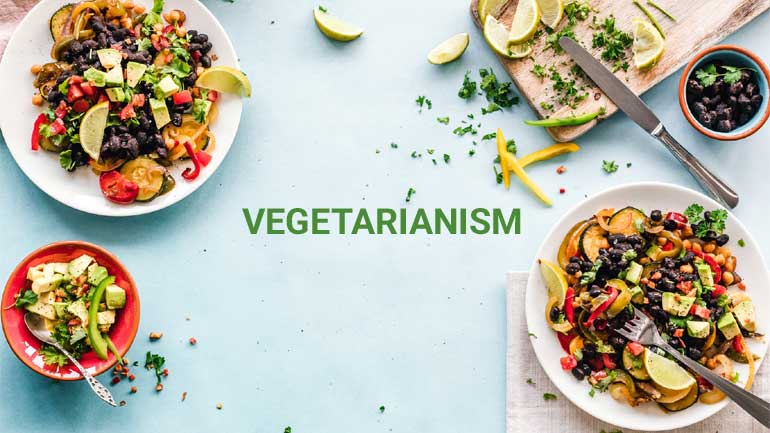
Becoming a vegetarian is not easy for everyone, especially if you are an avid omnivore and can’t imagine one lunch or dinner without meat. Don’t fool yourself that it can happen overnight by imagining yourself going to sleep as an omnivore and waking as a vegetarian. It’s far more complicated than that. Believe it or not, the start is the most challenging part. Remember last month when you told yourself that you are starting a diet tomorrow? Well, you did that every Monday till now. Starting with vegetarianism doesn’t work that way, so we are here to help.
Tips for Newbie Vegetarians
1. Don’t Force Yourself
One of the biggest mistakes is being convinced that everyone around you should embrace your diet. When you eat meat your whole life, it’s just impossible for your body to adjust to a new diet overnight. Even with the great support of your friends and family, this is an upheaval in your life. It can be the pressure you are putting on yourself unconsciously. Your decision should not affect anyone around, and their support should be enough. Take your time to adapt and find new recipes and foods you can use daily. Some meat cravings from time to time are entirely normal initially, but if you’re already decided on vegetarianism, keep continuity. It’s not like a typical diet for weight loss that you can violate sometimes and not feel guilty. This is a way of living.
2. Go Easy
It’s scientifically proven that every single habit requires 28 days to be adopted. Transfering to vegetarianism requires not only time but patience. Start with modifying your recipes and limit yourself only to fruits, vegetables, and nuts. If you can not extract the meat thoroughly, create your diet plan. You can exclude meat only on Monday or eat it only twice a week. People from weight loss clinic Chicago say that giving up one meat at a time can be helpful, or determine which dishes you will always prepare veggie. For example, you will prepare vegetarian pizza but still not give up on chicken pasta.
3. Try Meat Substitutes
Some necessary nutrients like vitamin B12 can only be found in milk, poultry, fish, and meat. Those foods are primarily out of vegan and vegetarian diet plans. One of the possible ways to make it up is to use meat substitutes. As a beginner, you may think that veggie burgers are welcome in your diet, and they can look like real meat. Unfortunately, soy-based products should not be part of your diet. Instead, consume nutritional yeast, non-dairy milk, or simply buy supplements. They are not the best solution, but they can help.
4. Experiment
If you are a picky eater- change that right now. Consuming only your favorite foods is not healthy at all. Even if you are eating only fruit and vegetables, it doesn’t mean that you have to eat fruit salad every day. It’s not healthy after all. Walk through the supermarket and find the part adjusted to vegans and vegetarians. There are various foods like edamame, tofu, paneer, etc. Then, go home and google for the new recipes and use those ingredients, or even better- create your authentic recipes.
5. Always Check Ingredients
When buying something at the supermarket, you are not actually checking the labels on the food, right? Change that now. Some of the foods are considered veggie-friendly, and they have a unique sign that proves that, but there is nothing wrong with double-checking. People always forget that things like gelatine in gummy sweets or animal suet are not for vegetarians. If you are becoming a vegetarian, think about whether you would like to consume hidden animal products daily.
When becoming a vegetarian, if you get tempted once in a while and break the rules by eating something you shouldn’t, it’s not the end of the world. Just get back to the track the next day.




